Introduction
Companies in the United States have been struggling with a skills shortage since 2018. SHRM reported that as of December 2018, 7 million jobs were open — but only 6.3 million unemployed people were looking for work. In their survey of HR professionals, 75% of those having difficulty recruiting said there was a shortage of skills in candidates for job openings.
The pandemic has only worsened this dynamic. With more than 140 million people out of work worldwide, there’s a massive pool of applicants seeking employment. Yet, particularly in logistics and manufacturing, businesses are still struggling to fill their open positions.
There are many reasons why skills gaps exist across industries. But, traditional hiring practices that consider education and degrees as a predictor of success are making it even more difficult for companies seeking to hire talent.
If your company is seeking to overcome the challenges of a candidate short market, implementing a skills based recruitment strategy may be the solution to finding qualified candidates and improving hiring.
How degree inflation has impacted the job market
Degree inflation refers to the rising demand for a four-year college degree for jobs that previously did not require one. The term was coined in a paper co-authored by Manjari Raman, director of Harvard Business School’s project on Managing the Future of Work. This research found that by engaging in degree inflation, employers restrict their access to the talent market and contribute to the skill gap in several ways.
First and foremost, the bachelor’s degree requirement disqualifies any candidates who might have the skills, just not the college degree, to do that job. Candidates can acquire skills through experience, online-based learning, formal certifications, mentorship, or other routes. Soft skills, such as critical thinking, can’t only be gained through college degrees.
Secondly, employers miss the opportunity to access potential talent pipelines that could actually increase the pool of qualified applicants. Diverse talent is often excluded due to the degree requirement. The BBC reports that degree inflation has a significant impact on populations that are less likely to graduate from a four-year collegiate program. In the US, Black and Latinx students are given just 11% and 14% of annual Bachelor’s degrees, respectively. Companies seeking to foster a diverse talent pool inadvertently exclude these nontraditional candidates through the degree-based hiring process.
[Read more: Skills-based hiring statistics that show degrees are less important than ever ]
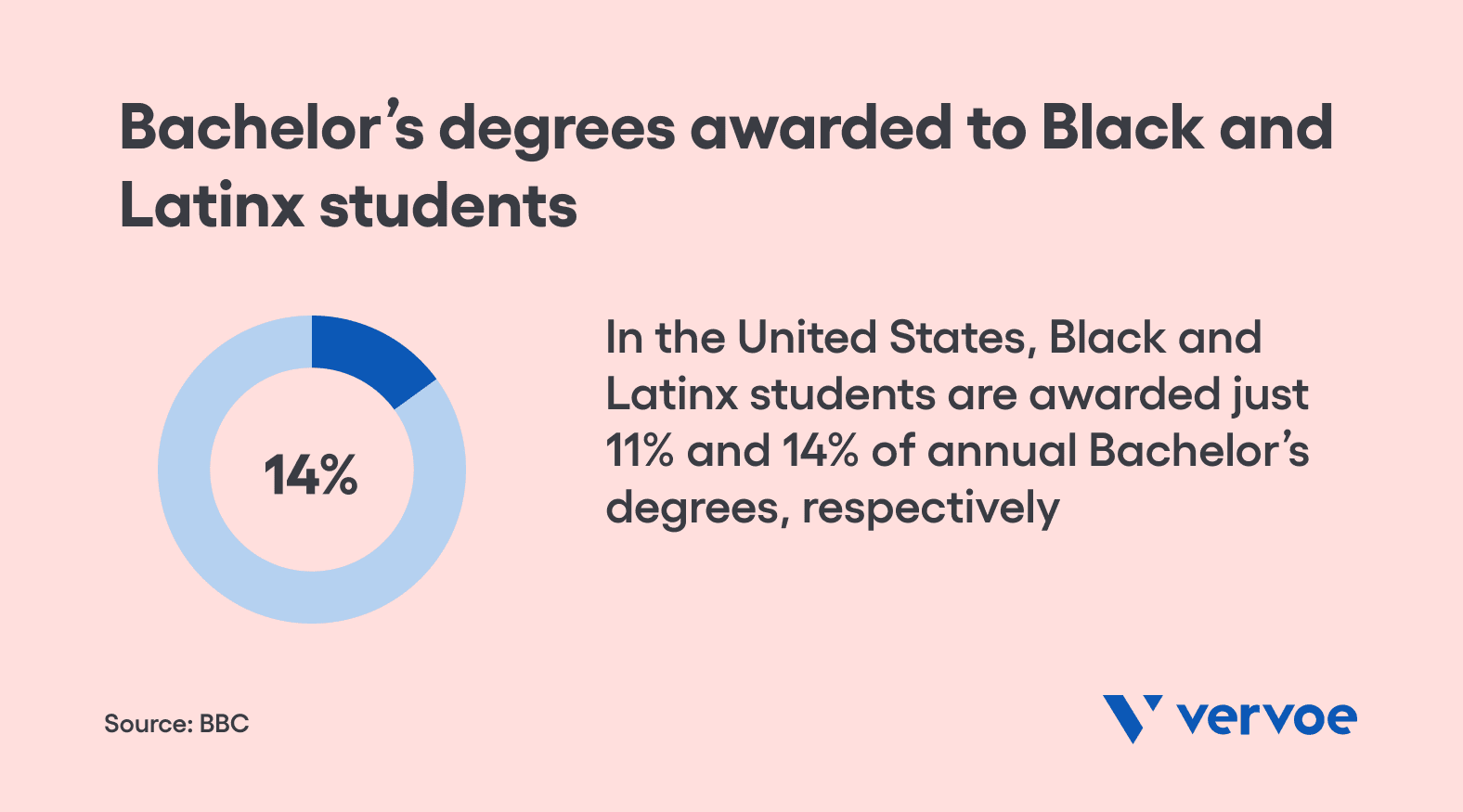
And, requiring education degrees forces many employers to compete for the same narrow segment of the job market. By raising the academic requirement, employers are all competing for the same candidates, leading to higher wages and growing wage pressure. Raman’s study found that college graduates earned substantially more ($1,156 per week) compared to median weekly earnings of $885 for all people age 25 and older, as well as those with an associate’s degree ($819) and those with some college but no degree ($756).
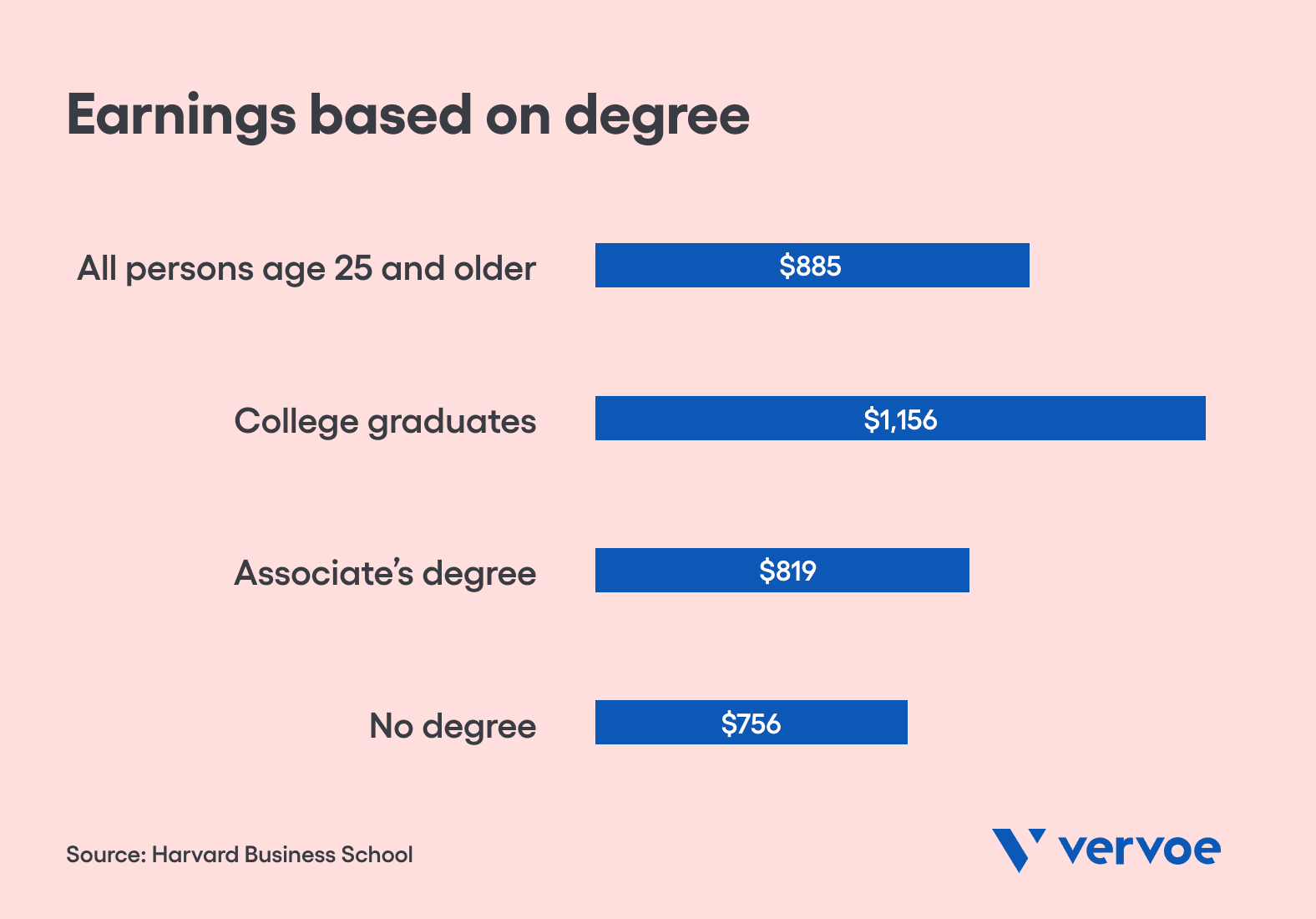
That’s not all — degree-based hiring can also derail the hiring process. An ATS or other hiring software scanning for keywords will often use education or degree as a proxy for talent. However, this can cause issues for jobs in which a traditional degree is a square peg for a round hole.
Take, for instance, software development roles. A survey by Hackerrank found that in 2018, 73% of developers said they knew JavaScript, making it the year’s most well-known language. But, student developers aren’t learning JavaScript — it’s not taught in most university computer science programs. Degree inflation, therefore, ultimately negates the useability of expensive tools that are meant to make it easier for hiring managers to find qualified candidates.
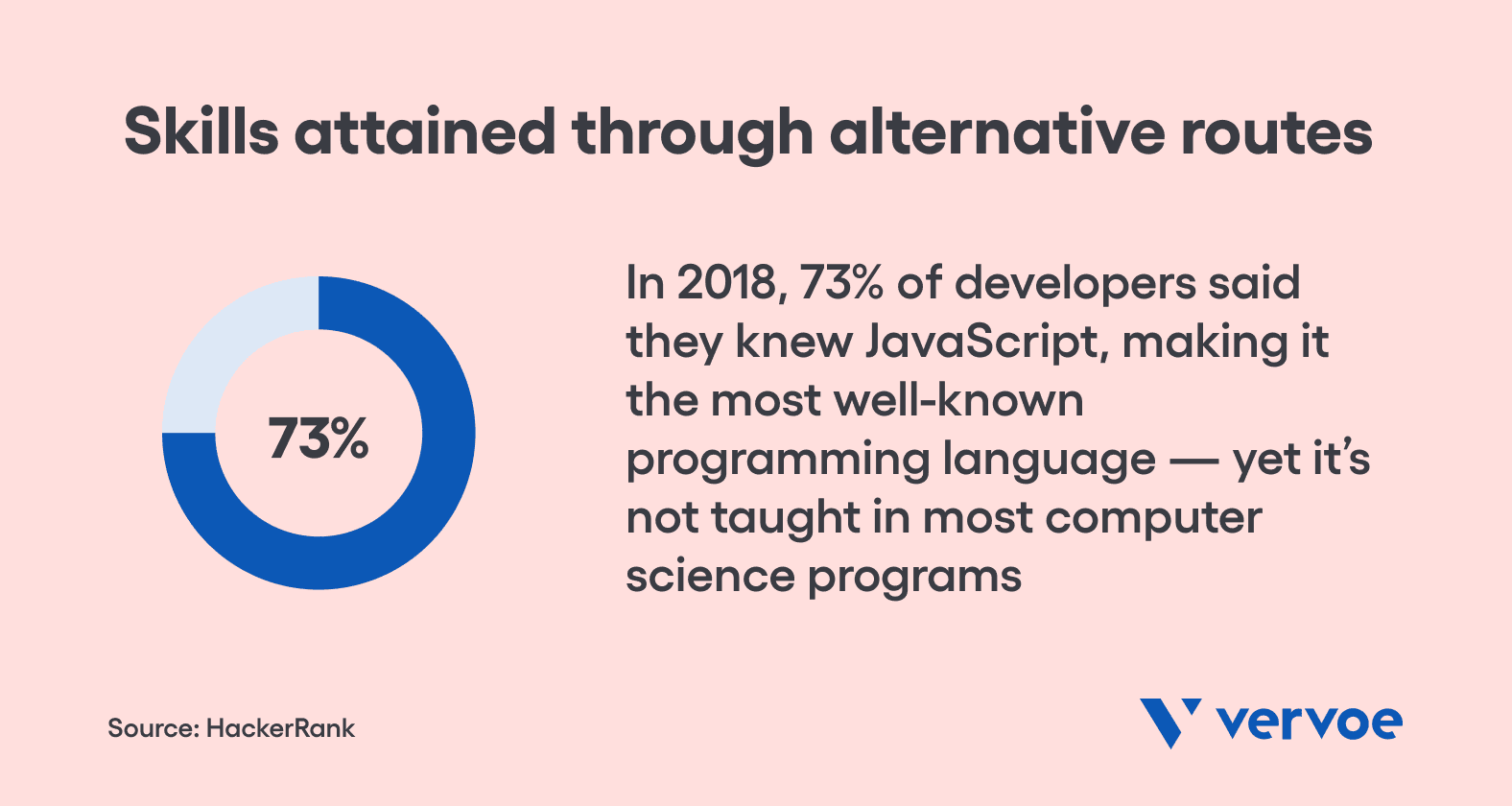
Hiring based on skills opens up a world of candidates
Luckily, skills-based hiring opens a world of opportunities for companies struggling to find new hires.
Skills-based hiring is the practice of screening and hiring new employees based on the capabilities and talent they bring to the table — rather than their educational background. Skills-based hiring considers hard and soft skills to screen in candidates, rather than eliminate qualified applicants because they don’t have the right background.
[Read more: How Skills-Based Hiring Can Transform Your Organization]
Skills-based hiring practices go beyond updating your job descriptions to erase the college degree requirement. Rather, companies that adopt skills-based hiring seek new tactics for validating someone’s experience and capabilities during the recruitment process. This approach focuses on competencies over college degrees.
Why? Because hiring bias is a problem for virtually all business leaders. All hiring practices that consider education unnecessarily prevent the best talent from joining your team. Affinity bias is an unconscious bias that can occur when a recruiter recognizes that a candidate went to their same alma mater. The recruiter may give that candidate preferential treatment in the application process as a result. The outcome can be the same as if you require a college degree in your job description — the best candidates may not be hired.
Skills-based hiring requires steps for fairly assessing interpersonal skills as well as hard skills. And, it works — for candidates and companies alike. Here’s what we’ve learned from the companies that use Vervoe:
- Over 80% of companies use a skills assessment that is uniquely tailored to their requirements
- Over 50% of companies want to test soft skills, not personality
- More than 90% of candidates prefer to be given an opportunity to prove their skills rather than be judged on their resume
Job seekers want the opportunity to show they can get the job done. Employers want potential employees with specific skills who are eager to work. Skills-based hiring helps match top talent with well-paying jobs in a process that works for everyone.
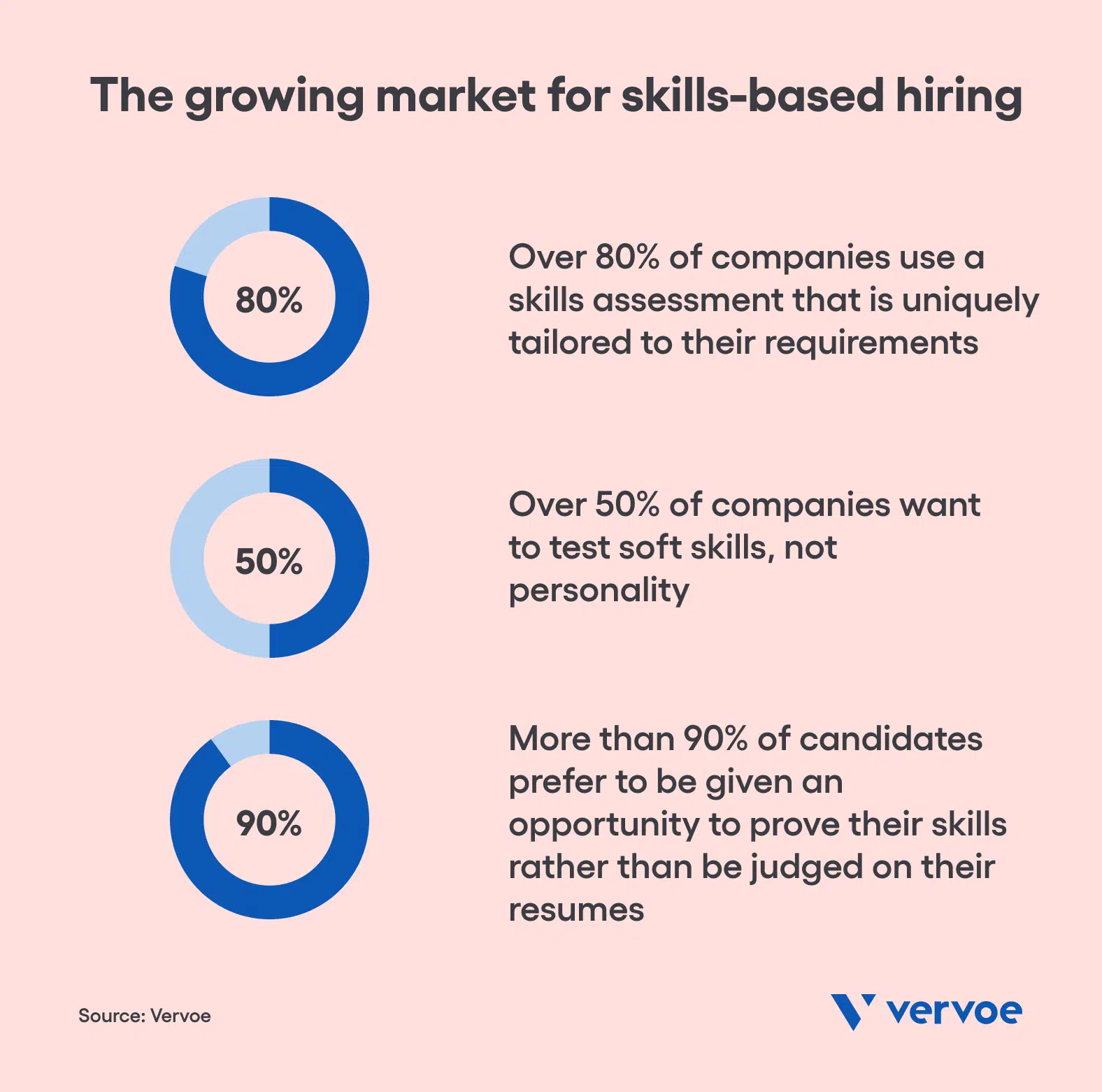
[WATCH: Interview with HR.com: Omer Molad explains the value of candidate skill-based testing]
Tips for building a skills-based recruitment strategy
A skills-based recruitment strategy seeks to find ways for a candidate to truly show their talent during the hiring process. Rather than rely on educational degree, skills based hiring employs skills assessments, blind hiring practices, development tools, and more to encourage candidates to apply and complete the recruitment process.
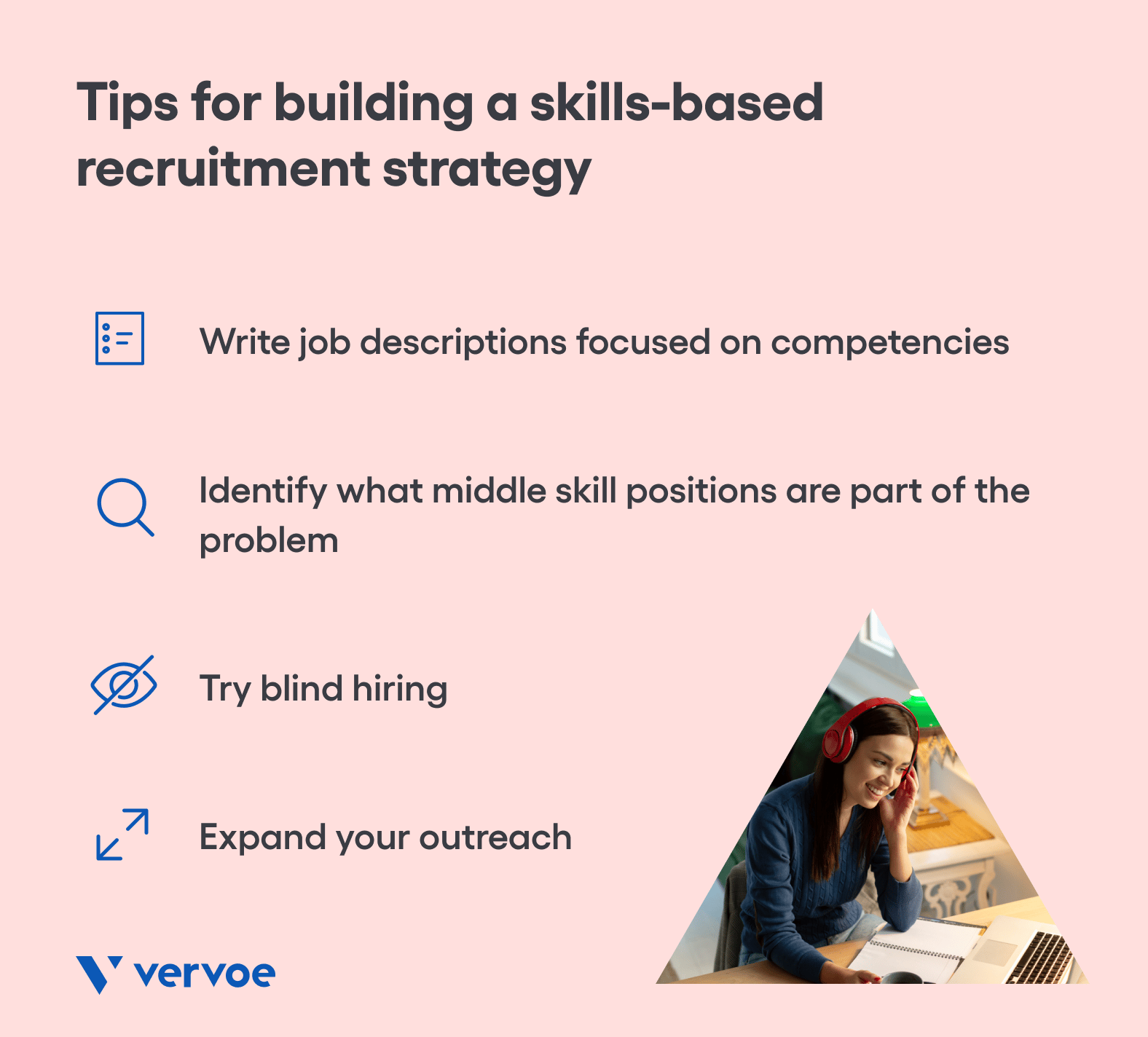
Write job descriptions focused on competencies
A skills based approach starts with reviewing each job posting and job description to identify the competency requirements for each role. Carefully review which positions actually require four-year degrees, and which can be completed through competencies — e.g., hard and soft skills learned through experience or nontraditional means. Technology fields are a great example here.
Of course, some jobs do require a specific skill that can only be taught in the classroom. Doctors and lawyers possess skills that should be validated by a four-year degree. But, a college degree probably isn’t necessary for other industries, such as the food industry.
What are some examples of competencies you might include in your job description? Competencies are defined as “the knowledge, skills, abilities, and behaviors that contribute to individual and organizational performance”. Check out some of our sample job descriptions for inspiration for your next open role.
Identify what middle skill positions are part of the problem
Middle skill jobs are those that require more advanced training and education than a high school diploma, but less training than you would receive via a four-year college degree, according to Harvard Business School.
Middle skill jobs are one of the key sources of degree inflation. Over time, these jobs have become characterized by three trends:
- They create high value for US businesses
- They provide not only decent wages initially, but also a pathway to increasing lifetime career value for many workers
- They are persistently hard to fill
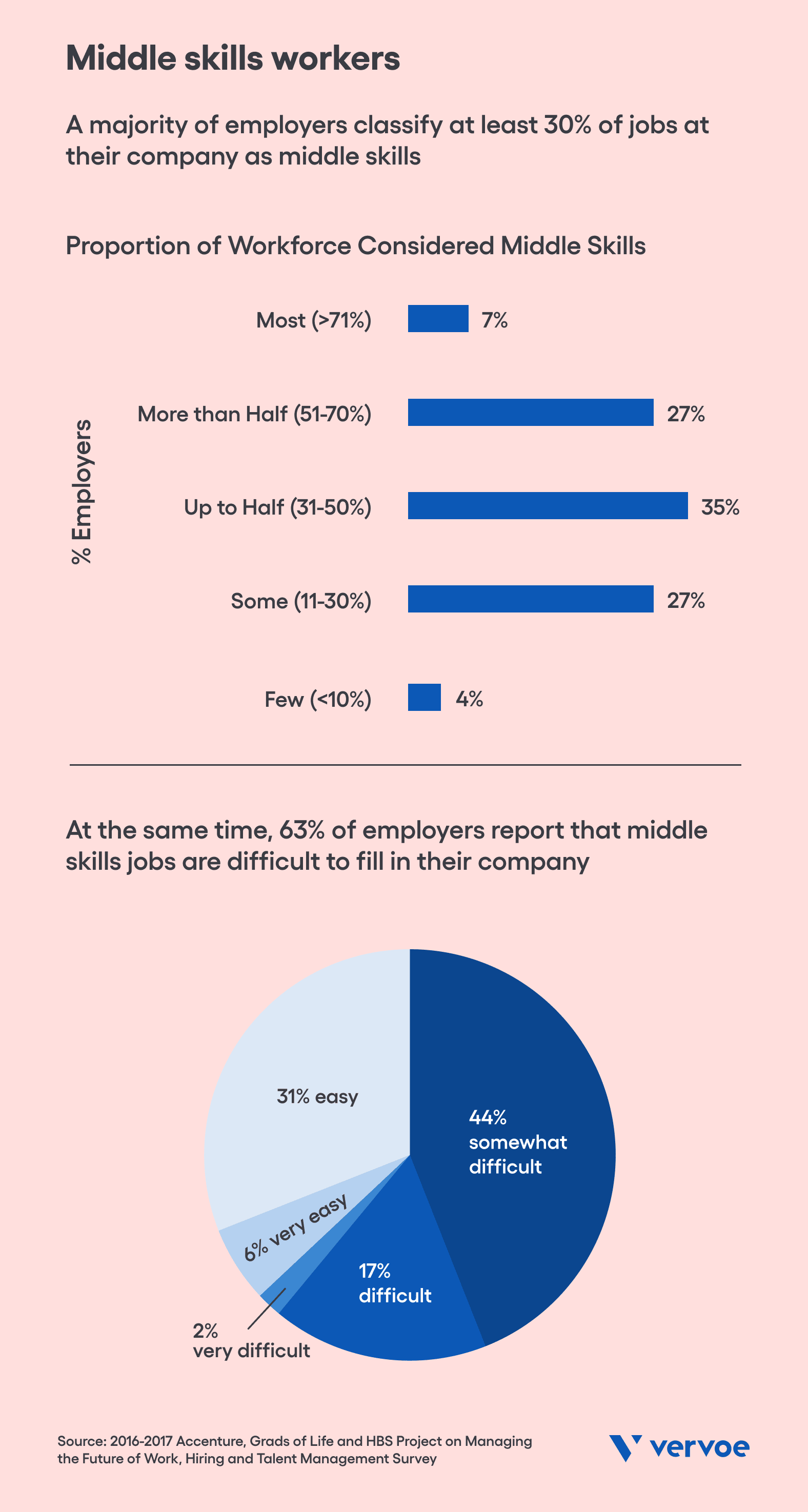
One reason why they are hard to fill is that rather than seeking specific skills, employers have defaulted to using college degrees as a proxy. This may be true in your organization, too.
Companies need to determine which jobs are critical for the business to operate, especially those middle-skills jobs that help a company stay competitive. Analyzing the influence of degree inflation on those vital middle-skills jobs can then help a company estimate how it compares with its peers in its ability to attract talent.
Through a skills gap analysis or other assessment, determine which of your positions have the highest time to hire, are most important to your company’s success, or require a specific middle skill set for which education has become a heuristic. This can help guide your process of implementing skill based hiring practices.
Integrate skills assessments
Skills based assessments are an easy way to verify if a person is qualified to take on the role — without using education as a proxy. Skill assessments can be used to test both hard skills and interpersonal skills.
A good skills test includes questions that are capable of being answered by someone already doing the job and can accurately measure key performance metrics. Questions should also be specifically tailored to relate to the responsibilities of an open position. Many skills tests include immersive experiences, like coding challenges or job simulations, to mimic how a candidate performs when faced with a real-life scenario.
Skill tests should be designed to screen people in, not out — meaning everyone gets a fair shot to show what they can do. Rather than eliminate candidates based on their scores, Vervoe’s skill assessments platform provides a ranked list of results scored by our AI.
[Read more: Skill Tests: Complete Guide To Assessments + Examples]
Try blind hiring
Blind hiring involves obscuring identifiable characteristics from a candidate’s application that are not related to their experience and job skills needed for success — including educational background. There are a number of ways to practice blind hiring, but the outcome is that employers can understand whether a candidate is the right fit for a role without unconscious biases getting in the way.
Expand your outreach
To foster skills based hiring, consider adding new job boards to your recruiting strategy. Skill gaps can be solved by tapping into a workforce that’s already readily available. Consider this: 60% of American workers over 25 do not hold a four-year degree. Rural communities, Latinx workers, and African American employees are among the groups that do not have four-year degrees.
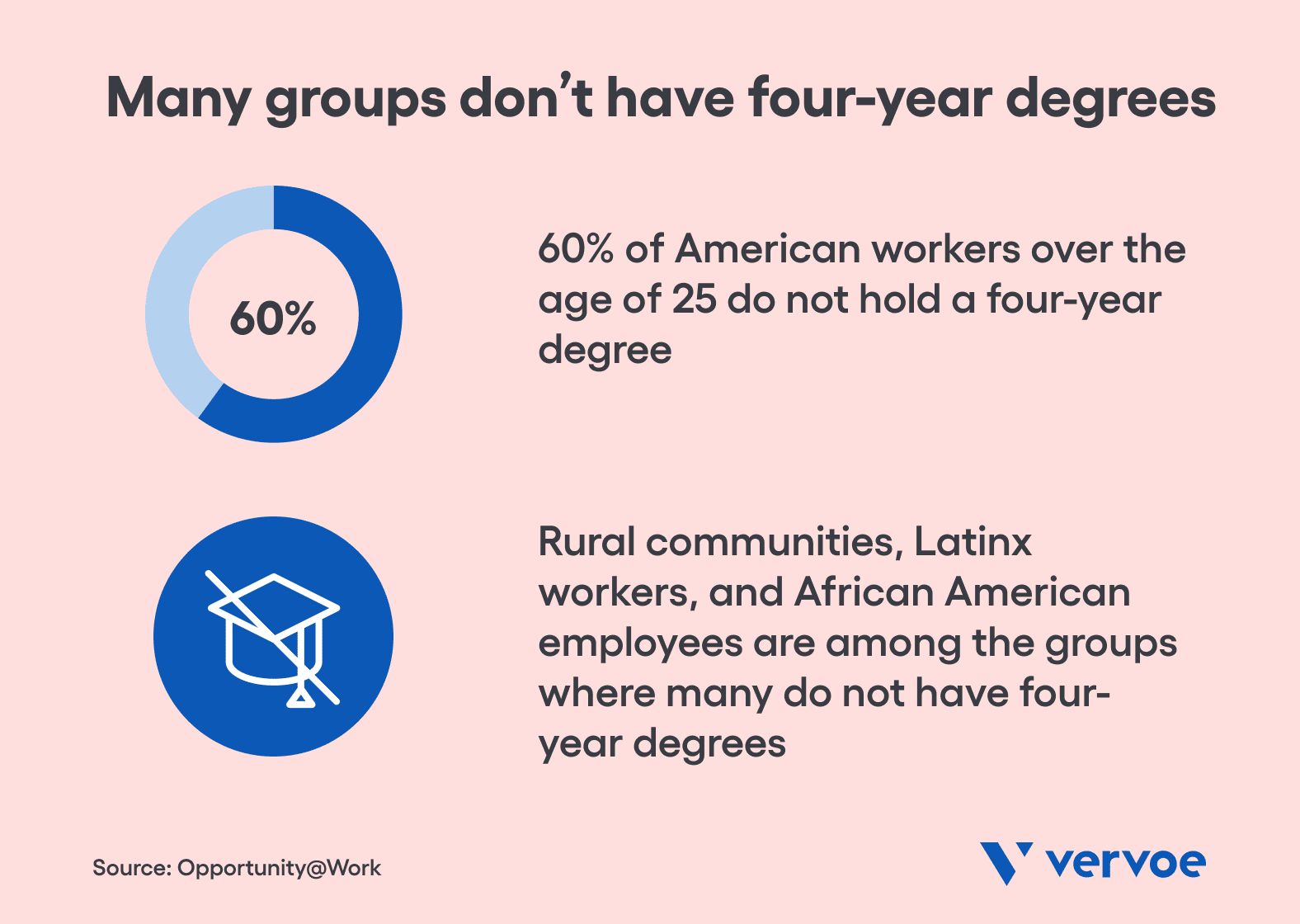
When you drop the degree requirement for new jobs and make an effort to reach diverse candidates through sourcing, you’ll find your hiring improves dramatically. Encourage existing employees to help with your recruiting; offer tools on your career page that make it easy for users to match their skills with an open position, and change your job titles to be more inclusive. Research shows that listings with gender-neutral wording can attract 42% more responses.
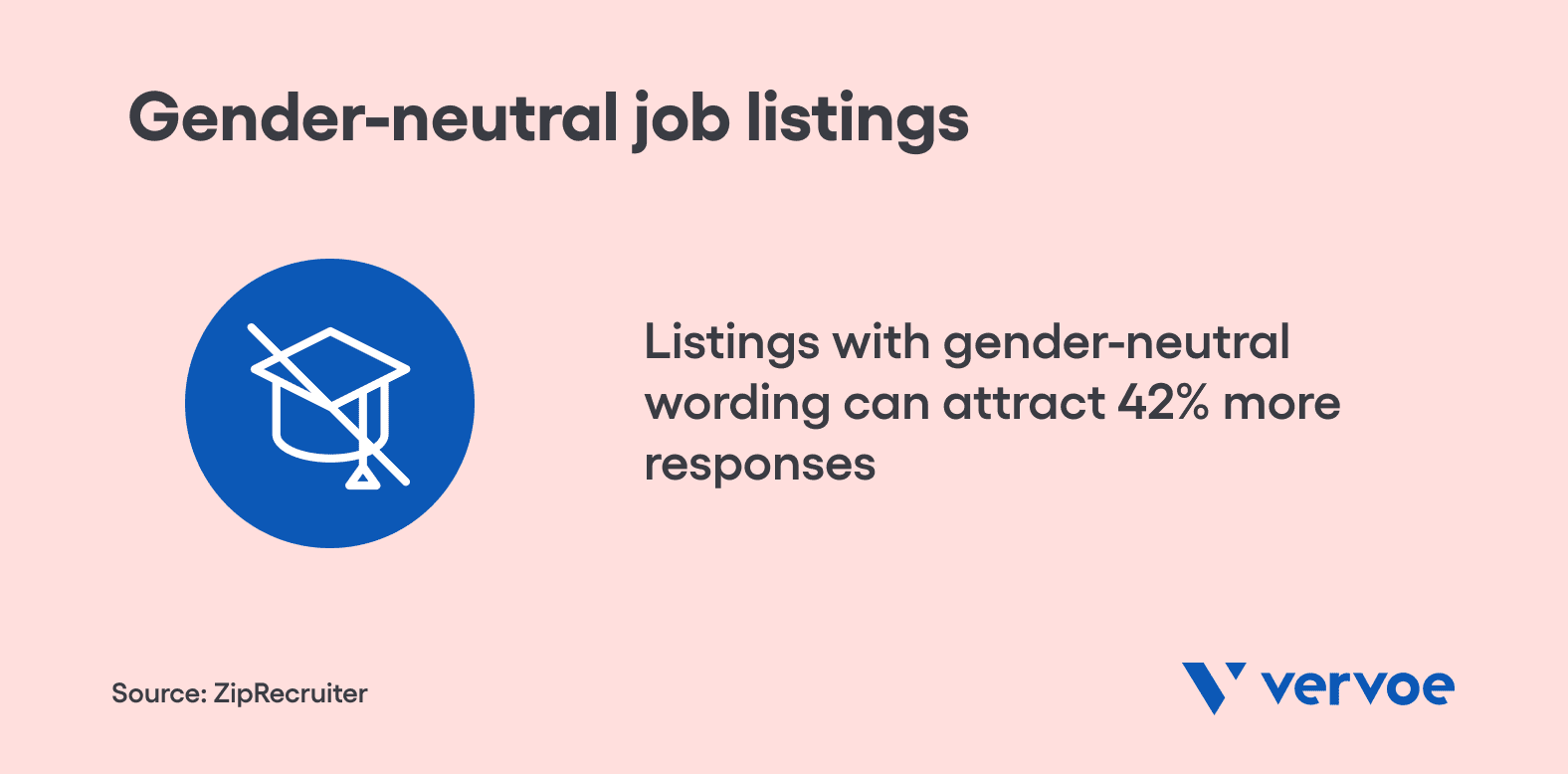
Conclusion
There are great workers out there — it’s just a matter of building a recruiting strategy that encourages them to apply. Through skill based hiring, companies can cut costs, access a talent pool with a high degree of expertise, and gain a competitive advantage in the labor market. Skills based hiring is one of the most valuable resources that hiring managers can use to improve recruitment outcomes, such as diversity hiring.
To learn more, check out Vervoe’s Complete Guide To Skill Testing.




















